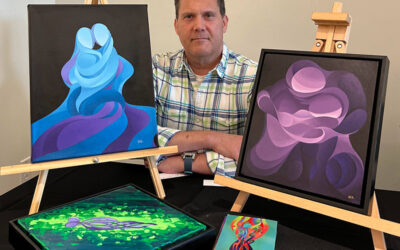By Sam Rasoul
Rasoul, a Democrat, represents much of Roanoke in the House of Delegates.
All too often when we hear mental illness, depression or suicide mentioned out loud, the details of a national or international tragedy follow. We may feel a need to understand or desire to impact change. All too soon, distance from the event allows those feelings to slip away and the good intentions to fade. Time and again.
Recently, we again find ourselves in the midst of conversations about the dangers of unchecked mental illness.
As we come upon another anniversary of the tragic shootings at Virginia Tech on April 16, 2007, it seems the conversation hasn’t changed.
Something is missing from these conversations: The lives and minds of those affected by daily mental health struggles. The roles and responsibilities of local organizations to guide those in need to find help. The truth and reality of how not addressing mental health will affect our long-term community well-being.
No one is beyond the reach of this issue.
Locally, nonprofit organizations like Family Service of Roanoke Valley and Mental Health America of Roanoke Valley work to increase access to mental health care by encouraging people of all social, cultural and familial backgrounds to seek help when needed. They remove physical and financial barriers to receiving care by bringing services to people’s homes, schools, after-school centers and nursing care facilities, and by providing services on a sliding scale fee.
At Family Service, an ongoing series of community conversations on topics including seasonal grief and survivors of suicide begin to destigmatize families experiencing their own tragedies. As referral agencies, nonprofit mental health organizations seek to find the best services available for those who reach out for help, partnering with local organizations like TAP, Sabrina’s Place, Children’s Trust, Local Office on Aging and more.
These organizations also play an important role in training new mental health professionals and facilitating the future careers of young counselors and social workers.
We must all realize the importance of talking about and healing from life’s challenges — whether childhood abuse, parenting concerns, circumstantial depression related to divorce or death of a loved one, or anxiety about changing roles of older adult life.
National discussion about how to identify mental illness in employees, colleagues or family members reveals our lack of understanding as to the underlying causes and possible treatments for these elusive issues.
The goal-setting, healthy decision-making and clear thinking that result from mental health counseling, intervention and support services will allow anyone of any age to be a more productive member of society. These resources give them a much-needed sense of self and purpose to overcome life’s challenges.
I think we should talk about mental health before it becomes a crisis or tragedy. Let’s address our own misconceptions about who needs mental health care and how they should be able to access it. Let’s talk about the community’s role in encouraging people to seek mental health care and how to make it affordable, accessible and reliable.
I encourage everyone to focus, as a community, on life, forgiveness, understanding, trust and truth. Start today by bringing understanding and the desire to impact change to the conversation. People affected by mental health struggles need our best efforts, not our best excuses.
Reprinted from Rasoul: A Conversation about Mental Health



